After 5 years of implementation, the National Target Program on Socio -Economic Development of Ethnic Minority and Mountainous Areas for the 2021-2030 period has completed phase 1 (2021-2025) and achieved many positive results, contributing to improving people's lives. Many community tourism models associated with preserving traditional cultural values of the people have been formed and developed.
In the hallway of the National Assembly, Delegate Nguyen Thi Suu, Deputy Head of the National Assembly Delegation of Hue City, Member of the National Assembly's Ethnic Council, shared with reporters of VietnamPlus Electronic Newspaper about this issue.
"Leverage" to improve life and economy
- Madam, the National Target Program for Socio-Economic Development in Ethnic Minority and Mountainous Areas for the 2021-2030 period has completed phase 1 (2021-2025). How do you evaluate the results achieved by this program?
Delegate Nguyen Thi Suu: Currently, there are five national target programs. I assess through measurements from the people and beneficiaries that these programs have brought many opportunities for development, improved living standards, improved the economy, and at the same time contributed to raising awareness for people, especially in remote, border and ethnic minority areas across the country.
However, there are still many concerns. Although the implementation period is determined to be 5 years, in reality, the support projects under the three national target programs have only started to be implemented from 2023. The concentration of resources in a short period of time has created great pressure for the implementation process according to the original plan.
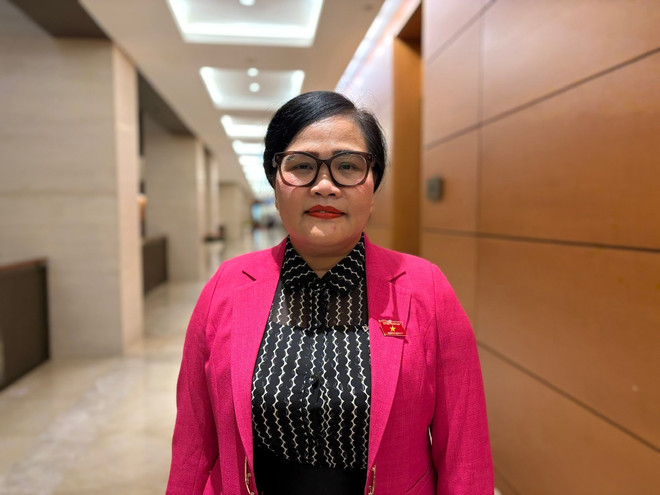
In addition, the inflation factor over time also affects the effectiveness of project implementation. Climate change is increasingly strong and unpredictable, forcing many localities, especially mountainous areas, to adjust the location and content of projects accordingly.
The merger of many communes together also creates difficulties due to the lack of timely guidance from ministries and branches on capital and resource pooling mechanisms and determining the plan to merge or maintain each project independently. This is an issue that needs to be carefully calculated to ensure effective investment and avoid loss and waste.
In the process of implementing national target programs, especially socio-economic development programs for extremely difficult and mountainous areas, the issue of resource waste needs to be given attention and strictly controlled.
Avoid "uniformity" in community tourism development
- One of the important contents of the National Target Program for the Development of Ethnic Minority Areas is to preserve and promote the cultural identity of this area in association with tourism development. In your opinion, how can we promote more effectively community tourism models in ethnic minority areas?
Delegate Nguyen Thi Suu : The bright spot in recent times is the formation and spread of community tourism models, suitable for mountainous conditions. Currently, most of the (former) districts of ethnic minorities have community tourism models associated with the preservation and promotion of the cultural identity of ethnic minorities.
However, there needs to be re-evaluation and planning to avoid duplication and overlap between models. When tourism products are repeated and lack differentiation, it will cause boredom and lack of attraction, tourists will only choose one destination and prioritize nearby destinations with low costs. This will be very disadvantageous for remote areas, areas that should be awakened to their potential while those places have not been invested in a systematic way.
Therefore, the policy of tourism development associated with the preservation and promotion of traditional cultural values needs to be re-planned in the coming period. Community tourism development must ensure that local people benefit substantially, contributing to sustainable poverty reduction. Without strict management and timely orientation, despite potential, localities will still find it difficult to escape poverty. Local authorities need to have orientation to promote and encourage each commune and each village to have unique and characteristic products.
It is necessary to identify suitable highlights to develop community tourism based on traditional cultural identity, while combining modern elements to ensure hygiene, safety and bring good experiences to tourists. In addition to experiencing the unique traditional culture of the locality and sightseeing, tourists also need to be entertained, improve their health and relax.
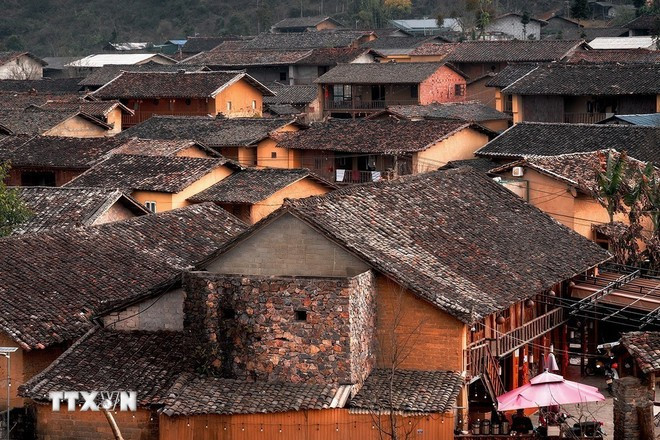
In the context of integration, Vietnam opens its doors to many different cultural flows, requiring appropriate orientation and management to protect indigenous cultural values, especially in ethnic minority areas where the level of education and access to information is limited. The role of local authorities and the political system is extremely important in building a "fence" to protect traditional culture. Cultural and tourism agencies need to coordinate closely to preserve and promote indigenous cultural identity in a sustainable manner, avoiding hybridization and patchwork.
Tourists today are not only interested in typical products or OCOP products but also want to experience local culture through language, cultural exchange, and stories of local people's lives. Therefore, preserving and encouraging the use of ethnic languages along with Vietnamese, even English, in tourism activities is very necessary.
The selection, preservation and promotion of unique cultural elements are extremely important to avoid the situation of "uniformity" in community tourism development. Each village has its own story and that is the strength to create a different attraction. It is possible to reasonably link adjacent tourist attractions to increase the length of stay of tourists, thereby increasing revenue, creating more jobs and promoting local economic development.
- The Government has agreed to integrate three national target programs, namely New Rural Development, Sustainable Poverty Reduction and Socio-Economic Development for Ethnic Minority and Mountainous Areas, into a common national target program. In your opinion, how will this impact the effectiveness of implementing these programs in the coming period?
Delegate Nguyen Thi Suu: The policy of merging three national target programs into one comprehensive program is reasonable, aiming to converge resources and create combined strength.
However, the program design needs to have a clear structure, identify specific presiding and coordinating agencies, and ensure that policy groups are reasonably divided and targeted to the right subjects, avoiding dispersion or fragmentation. This is a prerequisite for the overall national target program to be highly effective and substantive.
- Thank you very much./.
Source: https://www.vietnamplus.vn/phat-trien-van-hoa-gan-voi-du-lich-can-quy-hoach-de-tranh-trung-lap-post1075591.vnp






![[Photo] Da Nang: Hundreds of people join hands to clean up a vital tourist route after storm No. 13](https://vphoto.vietnam.vn/thumb/1200x675/vietnam/resource/IMAGE/2025/11/07/1762491638903_image-3-1353-jpg.webp)



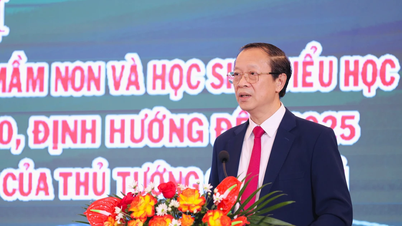
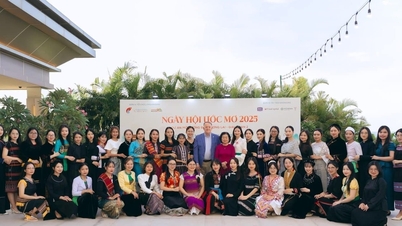

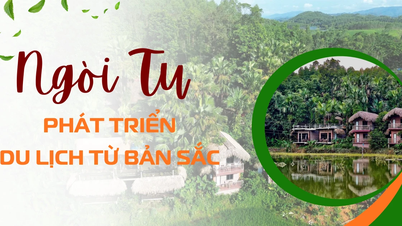



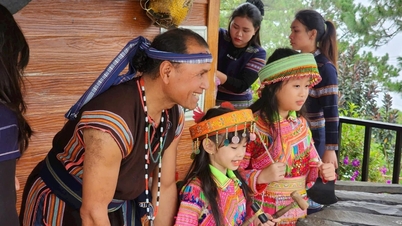



















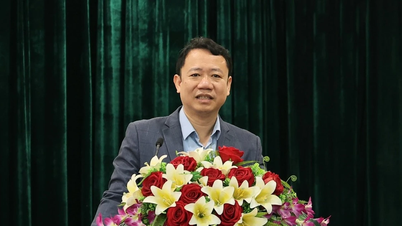





































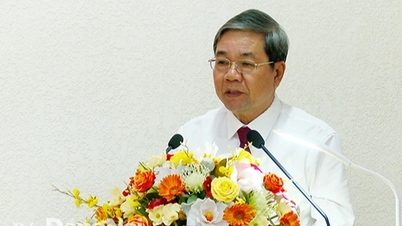
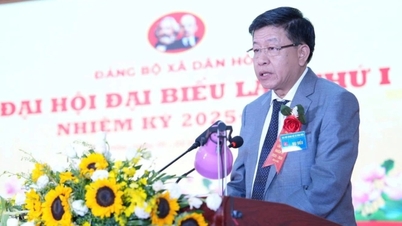

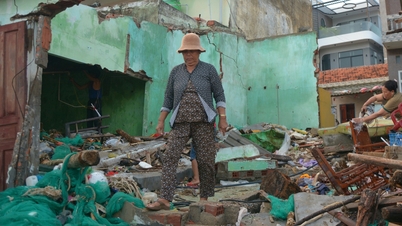




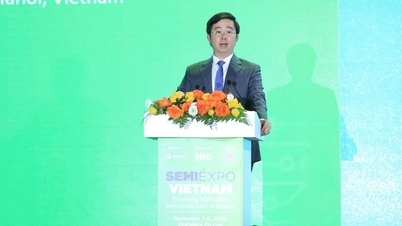

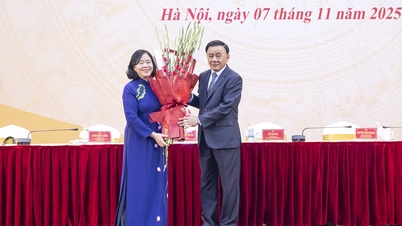




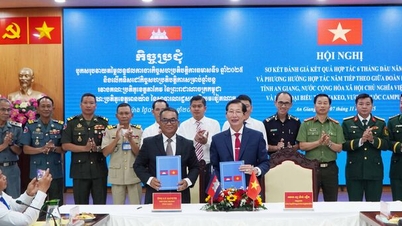

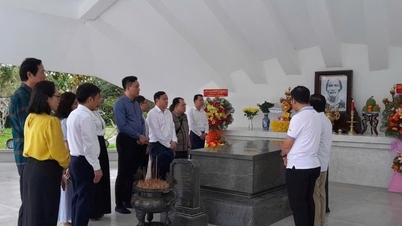

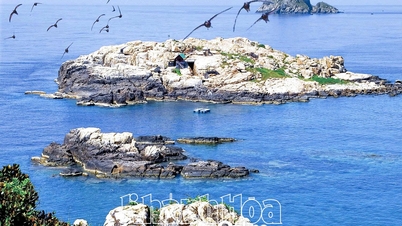

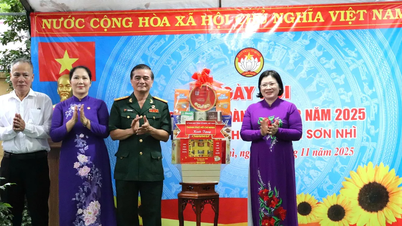
















Comment (0)